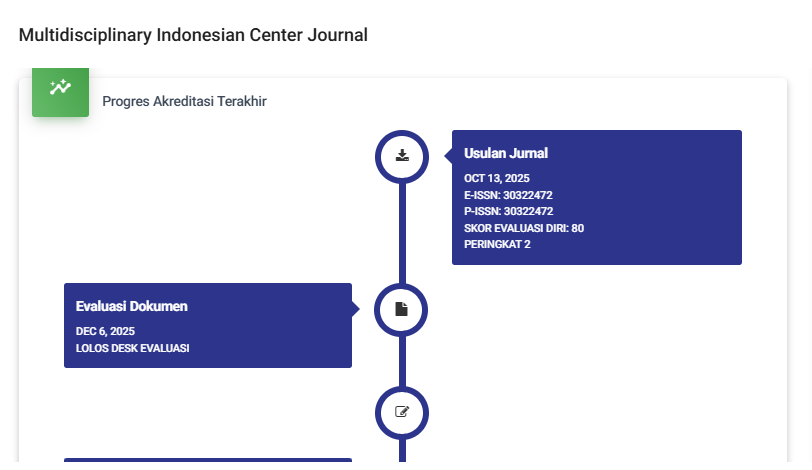THE QUR'AN AND SOCIAL SOLIDARITY: ANALYSIS OF CONTEMPORARY APPLICATIONS IN INDONESIAN URBAN SOCIETY
DOI:
https://doi.org/10.62567/micjo.v2i4.1214Keywords:
Qur'an, Social Solidarity, Contemporary ApplicationAbstract
This study examines the concept of social solidarity and religious values, especially those contained in the Qur'an. Social solidarity has long been the focus of discussion in various disciplines, ranging from sociology, political science, to Islamic studies. In the midst of the increasingly complex dynamics of urbanization in Indonesia, the question of how religious values, especially those contained in the Qur'an, can encourage collective action based on social justice is very relevant. By examining in depth the relationship between the teachings of the Qur'an and social solidarity, this article contributes to the development of social theory and practice in urban Indonesian society. It is hoped that the findings and recommendations presented can be a reference for academics, researchers, and policymakers in formulating strategies for integrating Islamic values into contemporary social dynamics, so that in the end it can produce a more just, inclusive, and dignified society. The results of the study show that there is a strong integration between the theological message in the Qur'an and the dynamics of social interaction, as well as its implications in the formation of pro-people public policy. Thus, the conceptual framework proposed in this study not only makes a theoretical contribution to the development of Islamic studies and sociology, but also offers practical recommendations that are applicable to the strengthening of social solidarity in the modern era. This study suggests that further studies can explore more empirical aspects, involving field data and participatory analysis, to ensure that the values of the Qur'an are truly integrated into social life and public policy as a whole. This research invites further dialogue between stakeholders in an effort to realize solid social solidarity, as a tangible manifestation of the application of the principles of goodness and justice enshrined in the Qur'an.
Downloads
References
Fadhilah, N. (2020). Implementation of social justice values in the perspective of the Qur'an. Indonesian Journal of Islamic Studies, 10(3), 200-225.
Hassan, R., & Sari, M. (2022). Collective action and social solidarity in the midst of urbanization: A sociological perspective of religion. Journal of Urban Social Studies, 15(1), 67-89.
Idrus, M. (2018). Interpretation and social dimension in the Qur'an: A normative analysis. Journal of Islamic Studies, 7(2), 90-112.
Malik, I. (2019). Social solidarity in an Islamic perspective: Breaking the boundaries between normative and empirical. Journal of Social Sciences, 5(2), 123-145.
Putra, A. (2021). Policy strategies based on Islamic values in facing urban challenges. Indonesian Policy Review, 12(4), 320-345.
Rahman, F. (2021). The triumph of the concept of social justice in the Qur'an: From principle to practice. Indonesian Journal of Social Justice, 8(1), 55-78.
Zain, M. (2020). Implementation of collective action based on the holy text of the Qur'an: A case study in Indonesia. Journal of Islamic Studies, 12(1), 45-67.
Downloads
Published
How to Cite
Issue
Section
License
Copyright (c) 2025 Ziyad Ulhaq

This work is licensed under a Creative Commons Attribution-ShareAlike 4.0 International License.



























